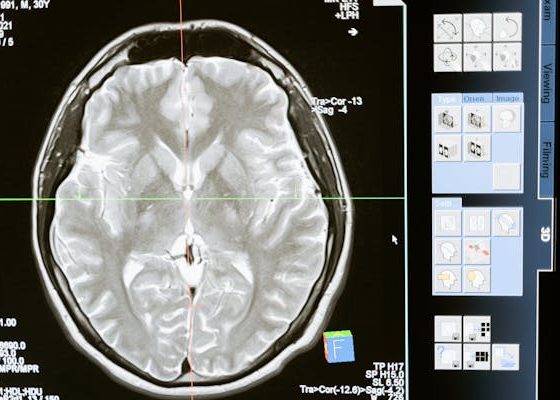Running is one of the most popular and accessible forms of exercise, embraced by millions of people worldwide. Whether you’re an experienced marathon runner or someone who enjoys a casual jog around the neighborhood, the benefits of running go far beyond just improving physical fitness. From enhancing cardiovascular health to boosting mental clarity, the health benefits of running are vast and well-documented.

We will explore in-depth how running contributes to overall health and wellness, focusing on its effects on the body and mind. By the end, you’ll have a clearer understanding of why running should be a part of your routine and how it can significantly improve your life.
1. Cardiovascular Health: Strengthening the Heart and Blood Vessels
One of the most significant health benefits of running is its positive impact on cardiovascular health. Running is a form of aerobic exercise, which means it raises your heart rate, strengthens your heart muscle, and improves circulation.
a. Improving Heart Function
When you run, your heart has to pump more blood to meet the increased demand for oxygen in your muscles. Over time, this regular exertion strengthens your heart, allowing it to pump more blood with less effort. This can lower your resting heart rate and reduce your risk of developing cardiovascular diseases such as heart attacks, strokes, and high blood pressure.
b. Reducing Blood Pressure and Cholesterol
Running also helps reduce high blood pressure by improving the elasticity of your arteries, allowing blood to flow more freely. Moreover, running can positively affect your cholesterol levels by increasing the levels of high-density lipoprotein (HDL) cholesterol, also known as “good cholesterol,” while reducing low-density lipoprotein (LDL) cholesterol, or “bad cholesterol.” This dual effect helps lower the risk of developing plaque in the arteries and contributes to overall cardiovascular health.
2. Weight Management: Burning Calories and Reducing Body Fat
Running is a highly effective way to burn calories and maintain or lose weight. It’s no secret that maintaining a healthy weight is crucial for overall health, and running is one of the most efficient exercises for calorie burning.
a. High Caloric Expenditure
Running burns a significant number of calories per minute compared to many other forms of exercise. The exact number of calories burned depends on factors like speed, distance, terrain, and individual body weight. On average, a person can burn between 600 and 1000 calories per hour while running. This makes it an excellent activity for those looking to lose weight or maintain a healthy body weight.
b. Boosting Metabolism
One of the lesser-known health benefits of running is its ability to boost metabolism. After an intense running session, the body continues to burn calories even while at rest, a phenomenon known as the “afterburn effect” or excess post-exercise oxygen consumption (EPOC). This helps in fat loss and improves metabolic health over time.
3. Musculoskeletal Benefits: Building Strength and Endurance
Running primarily works the muscles in your lower body, including your quadriceps, hamstrings, glutes, calves, and hip flexors. But it also engages the core and even upper body muscles to a lesser extent.
a. Strengthening Bones and Joints
Running is a weight-bearing exercise, meaning it requires your body to support its weight throughout the activity. This helps to build and maintain bone density, which is especially important for preventing osteoporosis and reducing the risk of fractures later in life. According to studies, runners tend to have stronger bones than non-runners, and running can help mitigate the bone loss that occurs naturally with aging.
b. Increasing Muscle Strength and Endurance
While running is primarily known for improving cardiovascular endurance, it also strengthens your muscles, particularly in the lower body. Over time, regular running can lead to increased muscular endurance, allowing you to run longer distances and recover faster after strenuous activities.
4. Mental Health Benefits: Enhancing Mood and Reducing Stress
Beyond the physical, the health benefits of running extend to mental and emotional well-being. The connection between exercise and mental health is well-established, and running is no exception.
a. Releasing Endorphins and Fighting Depression
One of the most immediate effects of running is the release of endorphins—chemicals in the brain that act as natural painkillers and mood elevators. This is often referred to as the “runner’s high,” a state of euphoria that many runners experience during or after a run. These endorphins not only improve mood but also help to reduce symptoms of anxiety and depression. Numerous studies have shown that regular aerobic exercise, such as running, is as effective as medication or therapy in treating mild to moderate depression.
b. Reducing Stress Levels
Running is a powerful stress-reliever. The rhythmic nature of the activity, combined with the release of endorphins, helps to calm the mind and body, making it easier to manage stress. Additionally, running outdoors in nature has been shown to reduce cortisol levels (the stress hormone) and improve overall mental clarity.
c. Enhancing Cognitive Function
Exercise, particularly running, has been linked to improved cognitive function. Regular running increases blood flow to the brain, which can enhance memory, concentration, and problem-solving skills. Running has also been shown to stimulate the growth of new neurons in the brain—a process called neurogenesis—which may protect against cognitive decline as we age.
5. Boosting Immune Function: Strengthening the Body’s Defenses
Another key health benefit of running is its ability to boost the immune system. While intense exercise can temporarily suppress immune function, moderate and consistent running strengthens it over time.
a. Enhanced Immune Response
Regular running has been shown to increase the circulation of immune cells throughout the body, which helps to ward off illness and infection. Runners tend to have a stronger immune response compared to sedentary individuals, meaning they are less likely to catch colds, flu, and other common illnesses.
b. Reducing Inflammation
Chronic inflammation is linked to numerous diseases, including heart disease, diabetes, and cancer. Running helps reduce inflammation by lowering levels of inflammatory markers in the body. This reduction in inflammation may contribute to a longer, healthier life by preventing the onset of chronic diseases.
6. Sleep Benefits: Improving the Quality and Duration of Sleep
Good sleep is essential for overall health, and running can play a significant role in improving both the quality and duration of your sleep.
a. Faster Sleep Onset and Deeper Sleep
Research has shown that regular exercise, like running, helps individuals fall asleep more quickly and experience deeper, more restful sleep. The physical exertion of running tires the body, making it easier to transition into sleep. In particular, running helps increase the time spent in deep sleep, the most restorative phase of the sleep cycle, which is essential for muscle repair, memory consolidation, and overall rejuvenation.
b. Regulating Sleep Patterns
Running can also help regulate your circadian rhythm, which is your body’s internal clock that governs sleep-wake cycles. This means you’re more likely to fall asleep at a consistent time each night and wake up feeling refreshed, leading to improved overall sleep hygiene.
7. Social and Community Benefits: Building Connections and Support
While running is often considered a solitary activity, it can also be a highly social one. Whether you’re training for a marathon, participating in group runs, or joining a local running club, the social aspect of running offers numerous health benefits.
a. Creating a Support System
Being part of a running group or community can provide emotional and motivational support. The sense of camaraderie that comes from running with others can make the activity more enjoyable and help you stay committed to your fitness goals. In addition, surrounding yourself with people who share your passion for running can reduce feelings of isolation and improve your mental well-being.
b. Accountability and Motivation
Running with others can help keep you accountable and motivated to continue exercising. Many people find it easier to stay consistent with their running routine when they have a partner or group to run with. This accountability can be especially helpful when trying to overcome obstacles like fatigue, lack of motivation, or time constraints.
8. Longevity: Running and a Longer Life
Perhaps one of the most exciting health benefits of running is its potential to increase lifespan. Numerous studies have found that regular running is associated with a longer life expectancy.
a. Lowering the Risk of Early Death
A 2017 study published in the journal Progress in Cardiovascular Diseases found that runners have a 25-40% reduced risk of premature death compared to non-runners. This means that, on average, runners tend to live three years longer than non-runners. The same study also suggested that even running as little as 5-10 minutes per day can significantly reduce the risk of early death, particularly from cardiovascular causes.
b. Slowing the Aging Process
Running helps slow the aging process by keeping the body strong and functional. Regular aerobic exercise can delay the onset of age-related diseases such as dementia, heart disease, and diabetes, and it helps maintain mobility and independence in later life. Additionally, running improves skin elasticity, reduces the appearance of wrinkles, and promotes a youthful glow by increasing blood flow and oxygen to the skin.
9. Mental Resilience: Cultivating Discipline and Grit
Running is not just about physical stamina; it also requires mental toughness and resilience. The mental challenges that come with running—pushing through fatigue, managing discomfort, and staying focused on long-term goals—help cultivate a mindset of discipline and grit.
a. Building Mental Strength
Overcoming the physical and mental barriers in running can translate to other areas of life. Regular runners often report feeling more capable of handling stress, setbacks, and challenges in their personal and professional lives. The perseverance learned through running can help you develop a “can-do” attitude, making it easier to tackle difficult tasks with determination.
b. Setting and Achieving Goals
The process of setting running goals—whether it’s completing your first 5K, running a marathon, or simply increasing your weekly mileage—teaches valuable lessons about goal-setting, persistence, and delayed gratification. These skills are essential for personal growth and success in many aspects of life.
Conclusion
The health benefits of running extend far beyond just physical fitness. Running improves cardiovascular health, aids in weight management, strengthens muscles and bones, and boosts mental well-being. It also enhances immune function, improves sleep quality, fosters social connections, and may even extend your lifespan. Moreover, running teaches discipline, mental resilience, and goal-setting, all of which contribute to a healthier, more fulfilling life.
Incorporating running into your regular routine, even in small amounts, can have profound effects on your physical and mental health. Whether you’re running for fitness, stress relief, or personal growth, the rewards are numerous and long-lasting. So lace up your running shoes and hit the road—the path to better health awaits!







